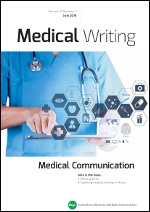 McCann Complete Medical Group have published this review about working in an agency.
McCann Complete Medical Group have published this review about working in an agency.
Six benefits of working agency-side… and the three questions you should ask to make sure it’s the right move for you
Two decades ago, working in a healthcare communications agency might have been regarded as a stepping stone to a career in mainstream pharma. But times have changed. As the industry’s reliance on outsourced services has grown, so too has the recognition that a good agency can offer alternative, but equally stimulating, benefits to working in-house at a pharmaceutical company. With the best agencies providing robust pathways for career development and genuine opportunities for personal growth, an agency role is no longer just a gateway into pharma. In fact increasingly, the traffic is coming the other way. It’s a growing trend – and for those that make the journey, it has real benefits.
Whether you work for a drug company or a communications agency, a career in healthcare is both motivational and rewarding. What’s more, as outsourcing has become de rigueur, the dynamics of agency/pharma relations have evolved from being “master and servant” to ones built around collaboration and partnership. The goal is the same on both sides; to develop innovative treatment strategies that deliver real-world benefits to patients. It’s a great industry. But the specific benefits of working agency-side are numerous – and may surprise many who have not previously considered making the move.
[Read the full article here]

 The first issue of this new magazine, supported by Oxford University’s Careers Service, includes a series of insights written by PhDs and postdocs who have moved from Academia into medical communications.
The first issue of this new magazine, supported by Oxford University’s Careers Service, includes a series of insights written by PhDs and postdocs who have moved from Academia into medical communications. While studying for my A levels, I wasn’t sure what to study at university, although my interests were English and biology. Knowing that there wasn’t much that I could do with an English degree and that a biological one would stand me in better stead, I pursued the scientific course. However, I wanted more from my degree than pure biology, preferring to keep my options open. Imagine my delight when I found a biological and forensic science course! Not that I was looking for a career in forensic science; I just wanted to keep things interesting, and 3 years of studying forensic science WAS interesting. My lecturer came from the Forensic Science Service, so not only did he have numerous horror stories for us, but he also had plenty of experience – enough to warn us that working in the field would mean lots of research and monotony. Maybe, then, forensics was not for me…
While studying for my A levels, I wasn’t sure what to study at university, although my interests were English and biology. Knowing that there wasn’t much that I could do with an English degree and that a biological one would stand me in better stead, I pursued the scientific course. However, I wanted more from my degree than pure biology, preferring to keep my options open. Imagine my delight when I found a biological and forensic science course! Not that I was looking for a career in forensic science; I just wanted to keep things interesting, and 3 years of studying forensic science WAS interesting. My lecturer came from the Forensic Science Service, so not only did he have numerous horror stories for us, but he also had plenty of experience – enough to warn us that working in the field would mean lots of research and monotony. Maybe, then, forensics was not for me… Published in the June 2016 issue of Medical Writing, written by Peter Llewellyn and Annick Moon
Published in the June 2016 issue of Medical Writing, written by Peter Llewellyn and Annick Moon